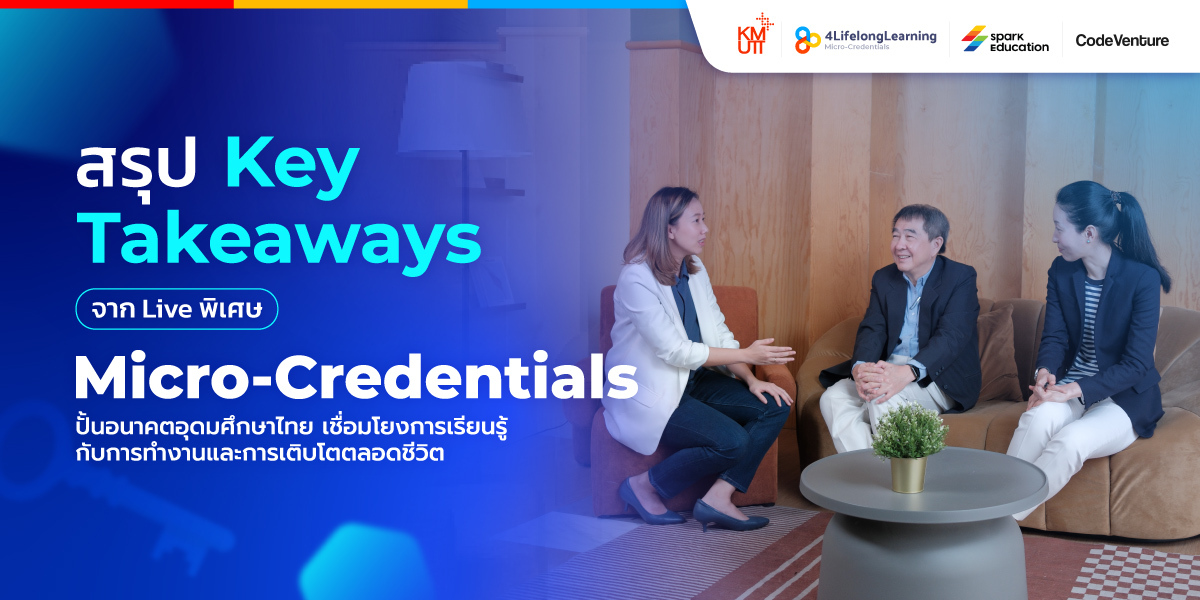
Here’s a summary of the key takeaways from a special Facebook Live event on the topic “Micro-Credentials: Shaping the Future of Thai Higher Education by Connecting Learning with Work and Lifelong Growth” featuring:
- Assoc. Prof. Dr. Bandit Tipakorn – Learning Innovation Consultant to the President of KMUTT
- Dr. Khlangjai Sithithaworn – Assistant to the President for Educational Technology Development at KMUTT
- Khun Apinya Hiranyavej – Founder of Spark Education and Co-founder of CodeVenture
They discussed essential trends in modern education aimed at equipping learners with skills suited for today’s and future job markets.
Overall Key Takeaways:
- Micro-Credentials (MCs) are a form of certification based on experience, academic foundation, and the ability to apply skills at work or create new things. They help tailor people’s skills to meet industry demands and provide a knowledge base to solve future problems.
- MCs as Alternative Credentials offer workers a way to prove their skills without needing to return to traditional degree-based education. This reduces learning time and allows for immediate demonstration of abilities.
- The traditional degree path might be too slow in accumulating knowledge. Alternative credentials can speed up career readiness.
- MCs will become a new tool to demonstrate job readiness.
- Companies and universities are vital in driving MCs toward a common standard that aligns with labor market needs. This will help develop a quality workforce while offering more learning options.
- Human Capital is essential in competing or collaborating with AI. Building competitive skills is necessary for national development and escaping the middle-income trap.
Differences between Traditional and New Learning Models:
- In the past, education signified job readiness.
- A degree was like “intellectual nutrition,” certifying general knowledge but not guaranteeing the ability to work in specific roles.
- Thailand’s credit system is still based on Credit Hours, which measure education quality by time spent learning. However, modern education focuses on Learning Outcomes, determining what students can do with their knowledge.
Challenges in Modern Learning:
- Engagement: Motivating students to learn by helping them understand how their education translates to work.
- Flexibility: Allowing learning at any time.
- Learning Pace: Recognizing that individuals learn at different speeds.
From a work perspective, employees need to be versatile, not necessarily deep in knowledge, but capable of performing well. Learning should focus on what is directly applicable to the job, as real-world work only draws on select areas of study. Moreover, many people no longer work in fields directly related to their studies, as technology has disrupted traditional career paths.